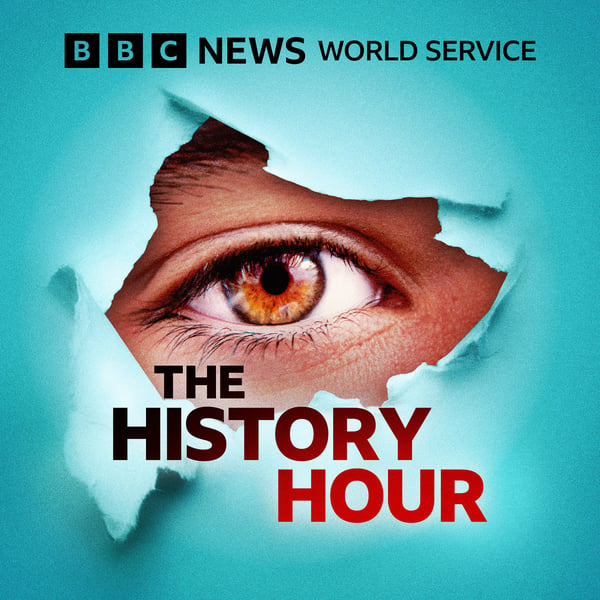Sweden’s Vipeholm experiments and the Intervision Song Contest
The History Hour
BBC
4.4 • 879 Ratings
🗓️ 17 May 2025
⏱️ 51 minutes
🧾️ Download transcript
Summary
Max Pearson presents a collection of the week's Witness History interviews from the BBC World Service. Our guest is Dr Elizabeth Abbott, writer, historian and author of the book, "Sugar: A Bittersweet History".
First, we confront the dark history of sugar.
We hear how a researcher in the 1990s uncovered the unethical aspects of Sweden’s Vipeholm experiments in the 1940 which led to new recommendations for children to eat sweets just once a week.
And, how Mexico, a country which had one of the highest rates of fizzy drink consumption in the world, approved a tax on sugary soft drinks in 2013.
Then an event which shaped the second half of the last century - On 14 May 1955, the leader of the Soviet Union and Heads of State from seven European countries met to sign the Warsaw Pact.
Plus, the story of how two rival electricity pioneers, Nikola Tesla and Thomas Edison brought electricity to the world.
Finally, we hear from Finnish singer Marion Rung on winning the 1980 Intervision Song Contest, the USSR’s answer to Eurovision.
Contributors:
Dr Elin Bommenel - academic Dr Simon Barquera - director of health and nutrition research at The Institute for Public Health of Mexico Dr Elizabeth Abbott - writer and historian Otto Grotewohl - German politician Mark Seifer - biographer of Nikola Tesla William Terbo - relative of Nikola Tesla Marion Rung - Finnish winner of Intervision song contest 1980
(Photo: sugar cubes and fizzy drinks, Credit: Anthony Devlin/Press Association)
Transcript
Click on a timestamp to play from that location
| 0:00.0 | Hello, it's Lucy Wersley here and we're back with a brand new series of ladies swindlers. |
| 0:07.5 | Promise never to mention a word of what is going on. |
| 0:10.0 | Join me and my all-female team of detectives as we revisit the audacious crimes of women trying to make it in a world made for men. |
| 0:19.4 | This is a story of working class women trying to get by in a world made for men. This is a story of working-class women trying to get by. |
| 0:24.3 | This is survival. |
| 0:25.3 | Join me for the second season of Lady Swindlers, where true crime meets history with a twist. |
| 0:31.3 | Listen first on BBC Sounds. |
| 0:45.1 | Hello and welcome to The History Hour from the BBC World Service with me, Max Pearson, |
| 0:50.2 | a collection of this week's episodes of witness history, the past brought to life by those who were there. |
| 0:54.6 | This week we mark 80 years since the end of the Second World War in Europe. |
| 1:00.7 | No more flying bombs, no more rockets, no more of that sinking feeling. You've gotten the pit of your stomach as the ambulance bell rang. It's all over. And the Japanese invention of the |
| 1:06.8 | electric rice cooker in 1955. It liberated women from the labor, which tied them up for two to three hours' day. |
| 1:16.8 | The reputation spread, and housewives sent a large number of thank you later. |
| 1:22.7 | But first, rescuing treasures from being destroyed by the so-called Islamic State. |
| 1:28.2 | In 2015, when the ancient Syrian city of Palmyra was about to fall to jihadist fighters, |
| 1:34.8 | a group of men risked their lives to save centuries-old artifacts from the city's museum. |
| 1:40.7 | Halil Hariri, an archaeology expert who worked at Palmyra's museum, |
| 1:45.0 | has been telling Josephine McDermott about his passion for its history |
| 1:48.3 | and the personal price he paid for the daring rescue. |
| 1:52.3 | It's May 2015, and there's chaos in the desert city of Palmyra in central Syria. |
| 1:58.4 | A murderous group of extremists is at war with the regimes of Iraq and Syria, and they're on |
| 2:03.7 | their way. |
... |
Please login to see the full transcript.
Disclaimer: The podcast and artwork embedded on this page are from BBC, and are the property of its owner and not affiliated with or endorsed by Tapesearch.
Generated transcripts are the property of BBC and are distributed freely under the Fair Use doctrine. Transcripts generated by Tapesearch are not guaranteed to be accurate.
Copyright © Tapesearch 2025.

